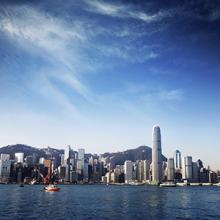Creativity and the family business
So the good ship Prada is about to be floated in Hong Kong harbour with a price tag of around $2.6 billion draped from its bow. How apt that the company began life way back on the eve of the Great War in 1913 selling trunks suitable for ocean-going liners.
The devil didn’t wear Prada in those days. He carried it. (Or, rather, his porters did.) Prada was a family business run by two brothers: Mario and Martino. They knew their market and gave their customers what they wanted. When their signature Prada suitcase, fashioned from extremely durable but heavy walrus skin proved to be ill suited for air travel, Prada concentrated on designing exquisite leather accessories and his legendary handbags. Now, of course, you can also have an appliquéd metallic leather jacket for four and half thousand US dollars.
This amazing valuation figure – the company not the jacket - is no less than 27 times forecast 2011 net income. In these last days before the price is fixed a huge amount is at stake. The PR war is heating up with those who are paid to ramp it constantly reminding us of the massive potential of the Chinese market on Hong Kong’s doorstep where even modestly-earning white collar wives are willing to blow a month’s wages on the trophy asset of a genuine Prada bag. (The paradox is that while the Chinese are the chief culprits worldwide in the counterfeiting of luxury goods, their own citizens can spot a fake from a mile and couldn’t stand the shame of being seen walking down the Bund with a knock-off .)
The bag is one thing but the shares are another. There’s a suggestion that small-time investors may not be so keen. One of those closely associated with pushing the Prada float in Hong Kong was quoted by the FT as saying. “If you’re a Hong Kong retail investor . . . you have a very short investment horizon, you go out and get margin, you subscribe, you get allocated and you flip the stock on the first day or the first month. You don’t want the hassle of Italian capital gains tax.” Like a visit from the Inquisition, nobody, but nobody, wants a tangle with the Italian from the revenue.
Another part of the PR battle is an anxiety about succession-planning. How will the uber-talented but highly strung Miuccia, now aged 62, cope with the demands of piloting a public company with all the added stresses and strains that involves? And if she can’t cope, then who will? The numbers of luxury companies that lose their way when dull numbers men take over from the creative geniuses are legion.
These are things that Prada will not have had to concern itself about until now. Thus far those who needed keeping happy were a shortish list including the bank manager and the editors of Vogue in London, Milan and New York. Plus, of course, its customers. But this is the kind of thing you’re up against when you move from being a family business protected in the port of relative privacy to being tossed on the high seas of the international capital markets.
It drove Richard Branson round the bend and it looks as if Alexander Machkevitch - the Kazakh oligarch who founded the FTSE 100 miner Eurasian Natural Resources Corporation and is currently in the middle of a very ugly spat about corporate governance - may be feeling slightly queasy. Let’s hope Miuccia doesn’t suffer from seasickness.






